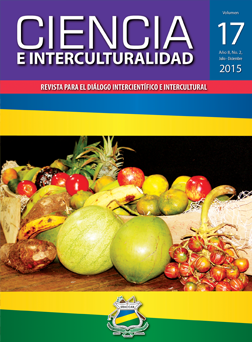PROPUESTA METODOLÓGICA EN LA APLICACIÓN DE LA DERIVADA EN INGENIERÍA AGROFORESTAL, II SEMESTRE 2013
Palabras clave:
Aplicaciones de las derivadas, cálculo integral, cálculo diferencial, estrategias metodológicas, Ingeniería Agroforestal, resolución de las derivadas.Resumen
Esta investigación ha evidenciado la importancia que tienen las estrategias metodológicas en el proceso educativo en las aplicaciones de las derivadas en la carrera de Ingeniería Agroforestal, pretendiendo que los discentes desarrollen autonomía para enriquecer su conocimiento y un aprendizaje significativo, forjar consciencia sobre la importancia que tiene la implementación de los softwares en las aplicaciones matemáticas.
El enfoque mixto permitió enriquecer los datos cuantitativos con la información cualitativa admitiendo la recolección, análisis y vinculación de los indicadores. La población fue conformada por 58 estudiantes de Ingeniería Agroforestal de los recintos de URACCAN Bluefields y Siuna (Las Minas), considerando como muestra a toda población, debido a que es muy pequeña al aplicar la fórmula triola para el cálculo de la muestra de una población finita con un margen de error del 1% y un nivel de confianza del 95%. El estudio determinó que la mayor dificultad es que los estudiantes no traen un dominio pleno de la Matemática (álgebra y geometría), razón por cual se les dificulta la comprensión y resolución de las derivadas.
Summary
This research has demonstrated the importance of methodological strategies in the educational process related to the applications of by-product in the career of Agroforestry Engineering, with the pretension that students develop autonomy to enrich their knowledge and achieve meaningful learning, and also to build awareness about the importance of the implementation of software in the mathematics applications.
The mixed approach permitted to enrich the quantitative data with qualitative information admitting the collection, analysis and link with the indicators. The population was made up of 58 students of Agroforestry Engineering from URACCAN (Bluefields and Siuna Campus (Las Minas), considering the entire population as sample, due to the fact that it’s very small when applying the triola formula to calculate the sample of a finite population, with a margin of error of 1% and a reliability level of 95%. The study showed that the main difficulty is that students don’t have a full domain of mathematics (algebra and geometry), and that’s the reason why they have difficulty to understand and resolve the by-products.

